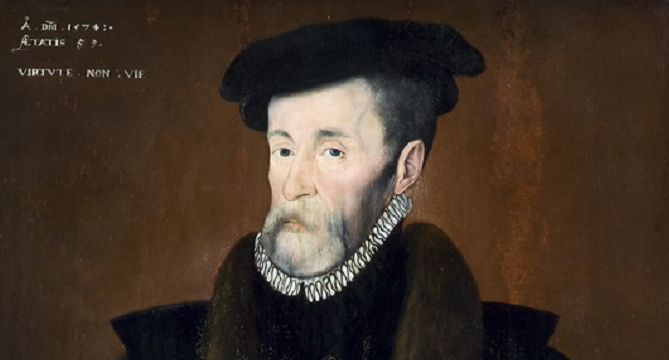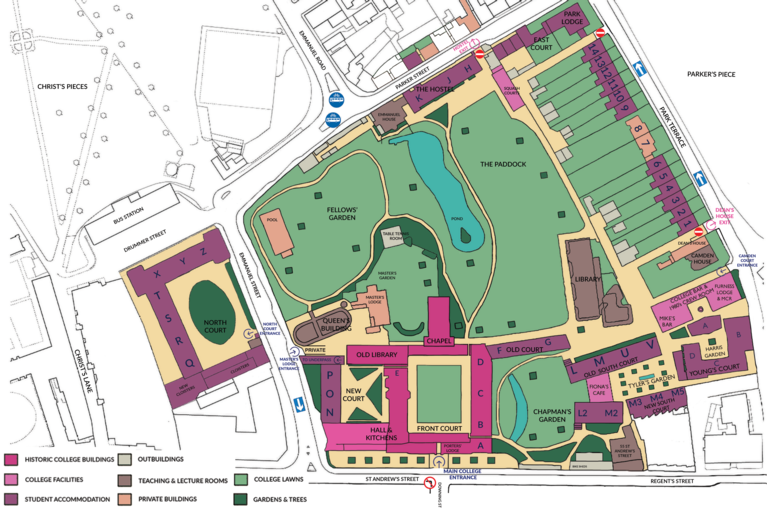The College's Founder
Sir Walter Mildmay was the son of a Chelmsford shopkeeper and rose to power & fortune during the reign of Henry VIII. He was a classic example of the social mobility that flourished during the early sixteenth century.

Sir Walter served as a trusted financial adviser to both Edward VI & Mary I. At the start of Elizabeth I's reign, he was appointed as Chancellor of the Exchequer. He held this post until his death in 1589. Due to his position & level of financial security, he was able to marry in 1546. His bride was Mary Walsingham, whose brother Francis was Elizabeth I's famous spymaster. Sir Walter was untainted by scandal during his life in government. As Chancellor of the Exchequer, he became a wealthy landowner. He was able to establish his family seat at Apethorpe in Northamptonshire.
He was an ardent supporter of the Reformation — what we would now call a Puritan. Throughout his career he nurtured religious freedom & helped Protestant refugees from Europe. However, he was not a zealous enforcer of his beliefs. His colleagues & friends joked that he was "Mild by name, and mild by nature".
Mildmay was an alumnus of the University, having studied at Christ's College in the 1530s. During his life & government work, he had quietly promoted learning & the reformed faith. Because of this, he chose to found a college at Cambridge whose religious nature & purpose he could direct. The College was called Emmanuel, meaning 'God with us': a greeting often used at the time by the Puritan community. Sir Walter's intention was to found a school of 'prophets'. He wanted to equip learned clerics, who would preach the 'true gospel' in parishes across the realm.
He was focused on the education & development of his students. When granted the founding Charter, Queen Elizabeth stated that he had founded a 'Puritan foundation'. However, he replied: "I have set an acorn which, when it becomes an oak, God alone knows what will be the fruit thereof".

